Karl-Ludwig-Johann Habsburg. Archduke defeating Bonaparte
Warrior by Vocation
The Napoleonic era, the era of almost continuous wars, made famous many of the generals who fought under the great Corsican or against him, and sometimes on both sides of the front. In this brilliant galaxy, the Archduke Karl occupies a special place, since he was the first to not only defeat Napoleon, but to put his army on the brink of complete defeat.
This happened in a two-day battle at Aspern and Essling on the banks of the Danube in the 1809 campaign of the year. However, even before that, it was Karl Habsburg who was rightly considered the military commander who was able to withstand the French Great Army and its commander in chief. His military talent was noticed already during the revolutionary wars and combined the qualities of a true warrior and an excellent organizer.
In imperial Vienna there are many monuments to the heroes of the past, about which the crowns themselves have almost no idea. However, the monument to Archduke Karl on Heldenplatz, where the sculptor portrayed the commander on the battlefield near Aspern, with the banner of the Tsach regiment in his hands, is not just loved. When modern tourist pavilions were erected next to it, almost the whole city protested.
Karl was the third son of the future emperor Leopold II and Maria-Louise of Spain, who ruled then in Tuscany. He was born in 1771 in Flanders, having almost negligible chances for the Habsburg throne. Karl grew up in Tuscany, not differing in good health, he often had epileptic seizures and was prepared for the career of a priest. However, from an early age, the Archduke became seriously interested in military affairs.
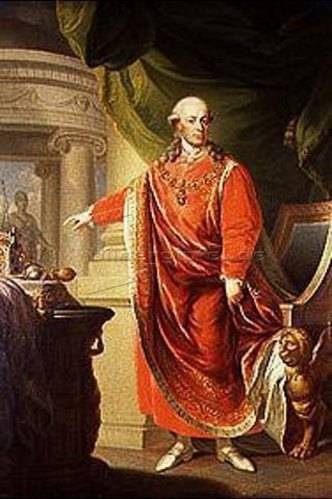
At the age of five, the offspring of the august surname, according to the tradition established by the Habsburgs, was appointed commander of the regiment. In 1790, his father, having received the imperial crown, invited his aunt - Archduke Mary-Christine and her husband, Duke Albert of Saxe-Tyoshensky, who had no children, to adopt, or rather, to recognize the heir of his third son. So Karl-Ludwig-Johann at the age of 19 years became Töschen.
A year later, together with his foster parents, he moved to the Netherlands, and already in 1792, when the revolutionary wars with France began, he received a baptism of fire in the battle of Jemappe. It was miserably lost by the Austrians, who, incidentally, was commanded by the Archduke’s foster father, but already in the battle of Altenhoven, Karl-Ludwig very successfully commanded the cavalry regiment. Soon he was appointed Governor of the Austrian Netherlands (now part of Belgium), with the rank of Field Marshal Lieutenant.
At the same time, he remains in the army of Prince Coburg, soon receiving the rank of field master. The young energetic Karl is constantly in conflict with the passive Coburg, and after the defeat at Fleurus, he is forced to go to Vienna, where he will spend three years practically inactive.
Brilliant debut
His return to the army did not take place until the 1796 year, when two French armies, General S.B. Jourdan and the Rhine-Moselle J.V. Moreau invaded Germany. According to a plan developed by Lazar Carnot himself, Moreau had to divert the Austrian army to ensure the entry of Jourdan into Bavaria. Subsequently, the two French armies were to go to Vienna, where they unite with the Italian army of Bonaparte.
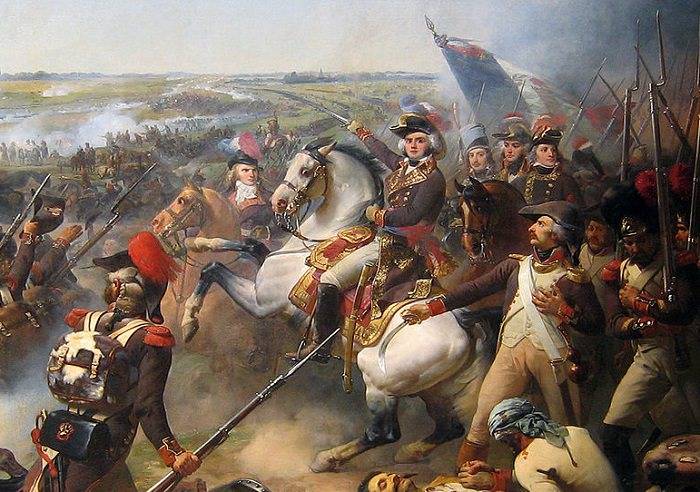
The Austrians also nurtured far-reaching plans, but Archduke Karl simply skillfully took advantage of the division of forces of the enemy. He inflicted successive defeats on both French armies, which even led to the resignation of Jourdan, who was replaced by the popular general L. Gauche. It is surprising that the rank of Field Marshal 25-year-old Austrian Archduke managed to get before his brilliant victories, as if in advance, when he only took command.
After a series of maneuvers and battles (near Neresheim, Amberg, Friedberg), the armies of Gauche and Moreau were forced to retreat behind the Rhine. Military historians for a long time, until the French inflated the Napoleonic legend, believed that the campaign of Archduke Charles on the Danube and the Rhine surpassed even the Italian general Bonaparte.
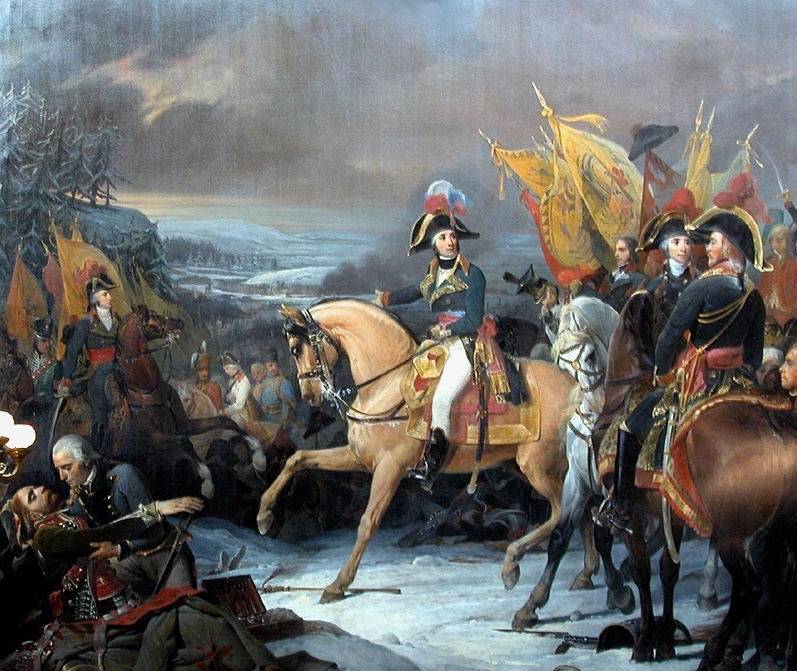
At the same time, oddly enough, the retreat of General Moreau for the Rhine is recognized as a masterpiece of military art. 16 years will pass, and Archduke Charles will not accept the proposal of the Russian emperor to lead the allied armies in the fight against Napoleon. And his old opponent, General Moreau, who had specially arrived from exile in America, would not be allowed to take command of the French core, which hit the general in the battle of Dresden.
Meanwhile, the young General Bonaparte, who, incidentally, was two years older than Archduke Charles, defeated the Austrian armies in northern Italy. The Austrian gofkrigsrat, the military council, consisting mainly of retired generals, who immediately replaced both the military ministry and the main headquarters, urgently sent Karl there, but then two outstanding commanders were not destined to converge on the battlefield.
The Austrian Commander-in-Chief offered to transfer the released troops from the Rhine to Italy, but in Vienna they seriously planned an invasion of France. As a result, Karl had only to save the surviving units, calmly bringing the matter to the Löoben armistice, which completed not only the campaign, but the whole war of the first anti-French coalition.
On equal terms with Suvorov?
Three years later, a new coalition was formed against revolutionary France. In the spring of 1799, the army of Archduke Charles successfully crowded the French from Northern Italy, occupying Milan, but at this theater it was soon replaced by Russian troops led by Suvorov. The Archduke himself went to Bavaria, and immediately began to insist on the transfer of the victorious Suvorov army, which practically cleared Lombardy and Piedmont, to Switzerland.
That is how Karl-Ludwig-Johann, together with the Gofcrisrat, began to implement the plan proposed by the Russian Emperor Paul. This plan implied a consistent maneuver to the north by all allied forces in order to eventually conduct an expedition in the Netherlands together with the British and thereby radically change the course of the war. The army of Karl-Ludwig was to besiege Mainz and seize the entire territory of present-day Belgium.
Suvorov smashed future Napoleonic marshals, and the Archduke again fought on German soil. The army commanded by Karl, already a field marshal, first concentrated on the banks of the Lech river, where he was attacked by the troops of the same General Jourdan, whom Carl had fought against under Fleurus, and then in the 1796 campaign of the year. But Jourdan could not succeed near Stockach and was forced, for the umpteenth time, to retreat behind the Rhine.
Fulfilling the order of the gofkrigsrat, Suvorov moved part of his troops to Switzerland, from where considerable forces of the Austrians had already managed to leave, including those commanded by the archduke. The barrier left by Charles against the powerful French army of General Massena, it seems, she simply did not notice, and after him defeated the Russian corps of Rimsky-Korsakov in the battle of Zurich.
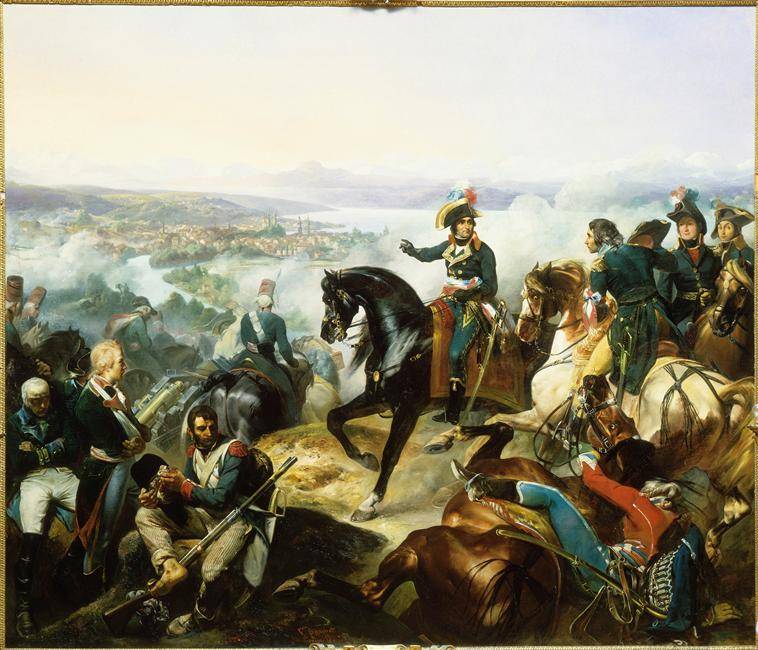
And Suvorov led his regiments just to join with him, and as a result ended up in a semicircle. There are many historians, and not only Russian ones, who accuse the Austrian field marshal, who was almost three times younger than Suvorov, of simply abandoning an ally. The correspondence of the great Russian commander with the Austrian gofkrigsrat and personally with Archduke Karl, as well as other sources, do not give direct reasons for this, but Suvorov himself would not have entered into such a trap.
At the price of an unprecedented exertion of strength and unparalleled heroism, having won a series of brilliant victories, the great Russian commander led his army virtually across the French rear. He spent it with minimal losses - out of almost 20 thousand of soldiers and officers, he had a little less than 16 thousand.
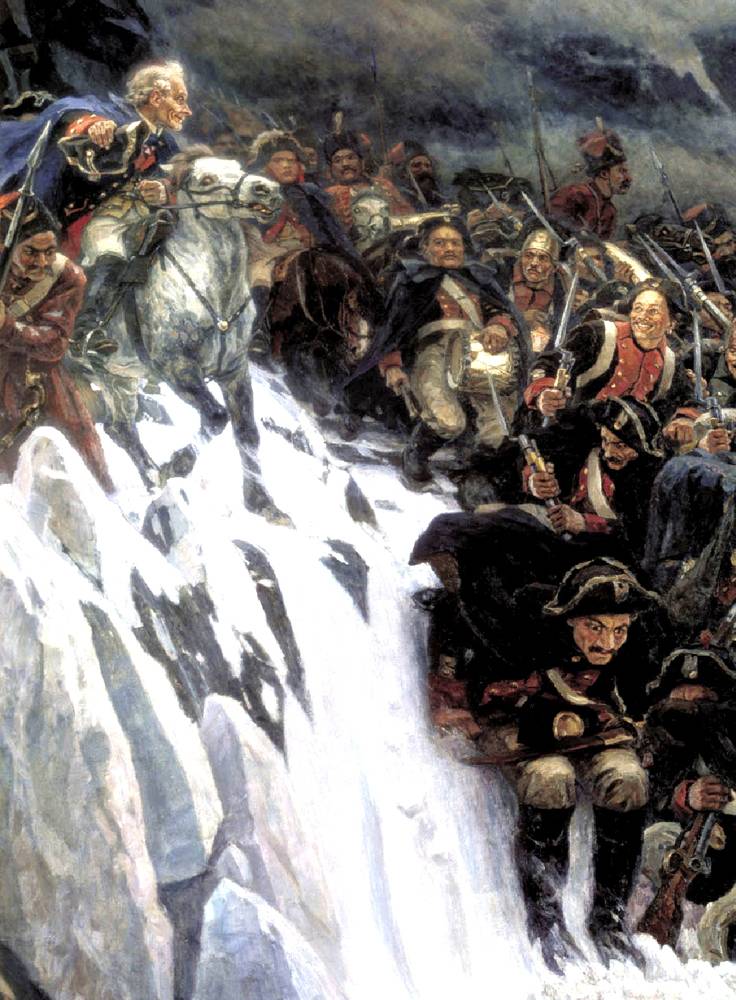
However, by the time the Russians united with the Austrians, the outcome of the war was still unclear, but Paul I decided to withdraw from the coalition.
Meanwhile, the 28-year-old Austrian commander also won a number of victories, but his successes, as before this, and Suvorov, were hindered by the extremely contradictory orders of the Austrian gofkrigsrat. Archduke Karl, who by that time was nominally considered the commander in chief of the Austrian army, did not hide his displeasure.
After the Austrians were beaten by Bonaparte at Marengo, and General Moreau - at Hohenlinden, Karl-Ludwig-Johann in 1801 left his high post and left for Prague with the permission of the emperor. However, immediately after him an envoy from Vienna went there with a request to lead the defense of Bohemia from the French. For this, Archduke Karl formed the Bohemian Volunteer Corps, but he could not lead it because of an aggravated illness.
Reformer
With the end of the next campaign, the Archduke concentrated on reforming the Austrian army. He did not intend at all to abandon the legacy of the "great" opponents of Frederick Prussia and completely rebuild it in the French spirit. At the same time, the skills of shooting combat, building in a square or deep columns for a bayonet strike of soldiers began to be taught practically anew. The time to abandon linear tactics and cordon strategies for the Austrians will come a little later.
Until the next campaign, 1805 of the year, the Archduke was not able to introduce a corps organization in the Habsburg army, but the supply system, the organization of artillery and engineering troops underwent significant changes. In the empire, instead of recruiting sets, they introduced the landver - an entire system of training military personnel, but at the same time they reformed a significant part of the cavalry, converted light infantry into rangers, and Austrian and all other regiments equalized their rights.
Finally, the ill-fated gofkrigsrat, who was ultimately led by Archduke Karl himself, was transformed into a military ministry and supplemented by a full-fledged general staff. With the adjutant service under the supervision of the quartermaster general, with the topographic department and the military archive. Most likely, the changes were for the better, although the French did not feel it too much in the 1805 war.
Having marched from the Boulogne camp, Napoleon’s Great Army first defeated the Austrian army of General Mack near Ulm, and then the combined allied forces near Austerlitz. At the same time, Archduke Carl, who became the head of the army in Northern Italy, again considered the main theater of military operations, fought quite successfully. Not losing the battle at Caldiero, he was forced to retreat in order to unite with the Russians in the vicinity of Vienna. However, he did not have time.
The defeat at Ulm and the equally terrible defeat at Austerlitz were received soberly at the court of Franz II. The emperor, whom Napoleon had recently forced to change his title from German to Austrian, and even become Franz I, gave Charles the go-ahead to continue the reforms. To begin with, he fired 25 generals, and also proposed introducing full unity of command in the army.
The Archduke wrote to his crowned brother:
Franz did not object and made Carl the commander in chief with the rank of generalissimo. The Archduke’s hands were completely untied, and he immediately took Count Philip Grün as assistant, appointed Baron Wimpffen as a personal adjutant, and his friend Mayer as quartermaster general. And for editing the new charter, he attracted the famous poet F. Schiller.
The peacetime army was immediately transferred to martial law, having established a permanent arrangement of regiments, divisions and corps. The regiments began to consist of two battalions of six companies and a four-company reserve battalion. It remained unchanged, and even developed the national principle of the formation of many regiments, which at that stage brought a good result. At least, patriotism and loyalty to the ruling dynasty increased.
Reformers recreated the army’s elite reserve from the grenadiers and guards, and continued to transform into cavalry and artillery. In general, field artillery was almost completely brought into uniform brigades, which made it possible to concentrate the fire of batteries on certain important areas without spraying guns on regiments and battalions.
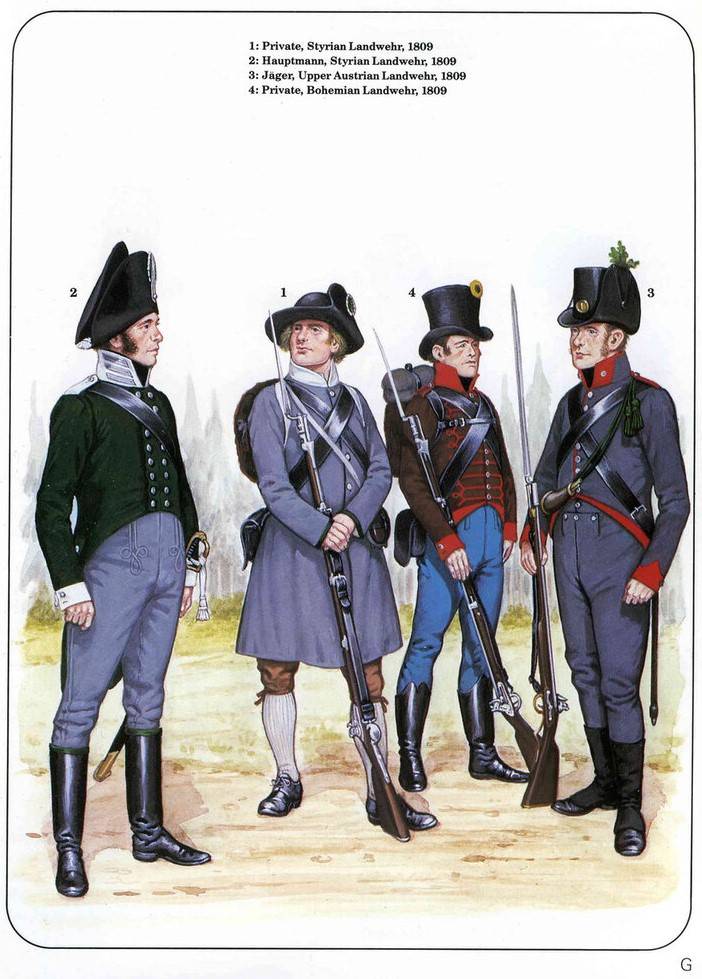
The system of territorial reserves was also developed, which became the actual development of the idea of the people's militia. It was of a defensive nature, but pretty troubled Napoleon, who subsequently demanded that Austria liquidate this institution. As a result, Archduke Karl’s reform worked. And although four years is clearly not enough for a complete transformation of the army, already in the next war with Napoleon the Austrians showed themselves to be real warriors.
Winner
In the spring of 1809, Austria literally craved revenge for the 1805 year, and tried to take advantage of the fact that Napoleon was seriously stuck in Spain. The invasion of Bavaria threatened the collapse of the Rhine Confederation and the entire German government system, which Napoleon fostered. In this campaign, Austria put on the battlefield 280 of thousands of soldiers with 790 guns under the command of Archduke Karl.
At first he was lucky, he delivered several serious blows to the scattered French corps. But the bold maneuvers of Marshal Davout and the arrival of Napoleon personally turned the tide. In a five-day battle in the vicinity of Regensburg, the French wrested the victory literally from the hands of Archduke Charles. From 19 to 23 on April 1809, two huge armies fought at Teigen, Abensberg, Landshut, Ekmule and Regensburg. The Austrians, who lost up to 45 thousand people, retreated to the vicinity of Vienna.
The Austrian forces failed to defend the capital under the pressure of the French. Archduke Charles led the army away from the blow of Napoleon's main forces, but he, breaking into Vienna, literally split the Austrian forces in two. However, the crossings of the Danube were destroyed in a timely manner. Napoleon had to force the river south of Vienna with clearly insufficient forces.
As a result, the French emperor suffered his first severe defeat in the field battle of Aspern and Essling. In addition, he lost the first of his marshals - Jeanne Lanna, one of the few who spoke with Napoleon on you and was his personal friend.
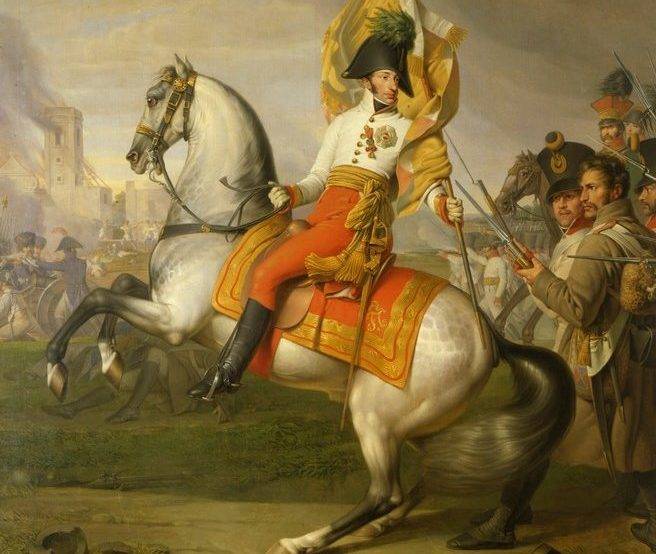
After Aspern and Essling, there was also a great confrontation under Wagram, in which Napoleon was again on the verge of defeat. The Austrians simply did not have the strength to cut off the French from the crossings on the Danube, while Massena made his risky flank march. Davout did not dare to go around the left flank of Archduke Charles, and Bernadotte, aligning the line, left the Austrians Aderklaa village - the most important position in the center.
On the second day of the battle, Napoleon had to rake the rubble that had piled up his marshals. MacDonald’s powerful almost 40-thousandth column literally broke through the Austrian front, and Archduke Karl began to retreat, recognizing his defeat. He organizedly led the army to Crozia, preparing to defend the last possessions of the Habsburgs.
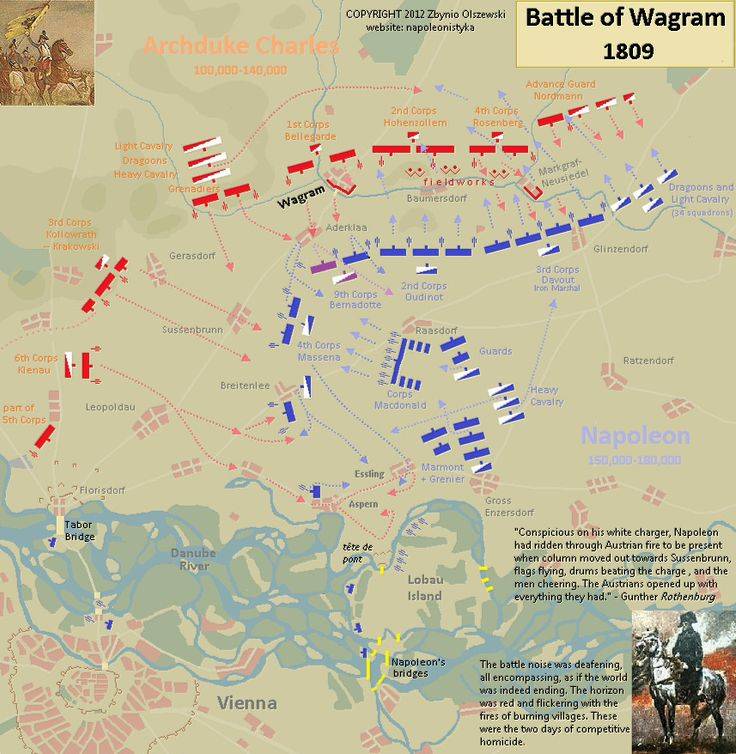
The chief of the Habsburgs, Emperor Franz, made peace at Schönbrunn, and only a few months later agreed to Napoleon’s marriage with his daughter, Maria Louise. The fact that the French monarch chose Archduke Charles as his representative during the matchmaking is considered a sign of special respect for Napoleon to his strongest opponent.
Theorist
After a truly epic rivalry with the French genius, Archduke Charles no longer took part in the wars. And if he twice refused the opportunity to take the throne - first in Portugal and then in Belgium, is it any wonder that he was no longer attracted by the prospect of fighting the French again - even at the head of the entire allied army.
There is evidence that after the defeats from the French, many Austrian officers were ready to plot in favor of Archduke Karl, but he himself prudently denied this prospect. The august commander decided to arrange his personal life, got married, had children and seriously engaged in theoretical developments in the field of military art.
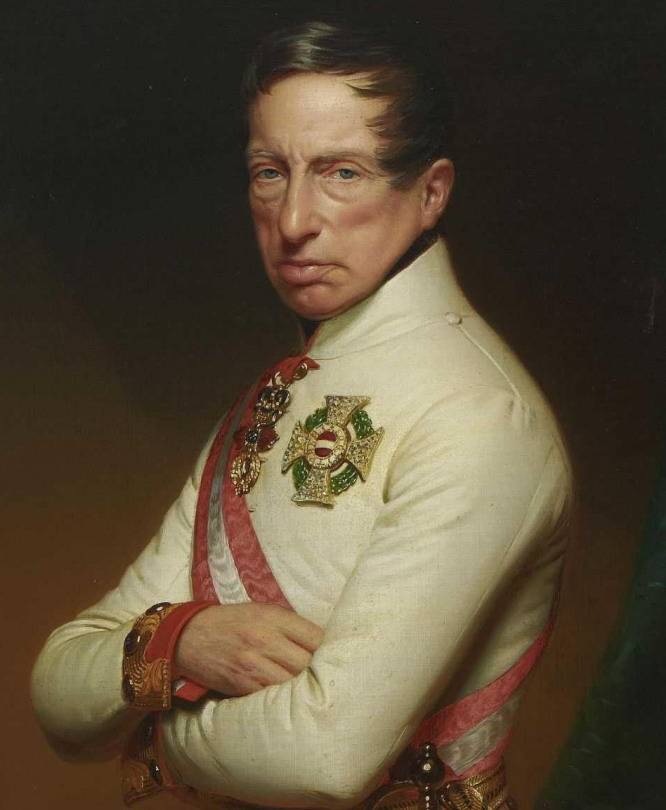
The Archduke wrote several volumes in a style that was characteristic not of the nineteenth, but of the previous century. The author was carried away by insignificant details and attached too much importance to the geographical factor. Karl-Ludwig-Johann drew and counted a lot, and someone called his "science of victory" someone "geometry of victory."
The talented Russian military historian Alexander Svechin noted that the Archduke himself, "despite his innovative ideas and admiration for Napoleon, was by nature a man who constantly looks back." The works of Archduke Charles are certainly of great interest to specialists, but here it will be enough to cite just a few quotes that most vividly characterize one of Napoleon's winners.
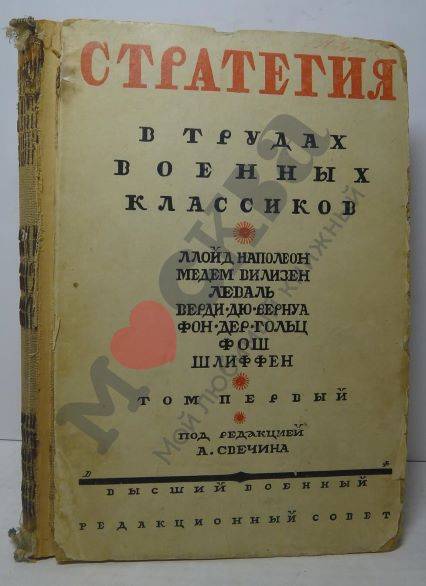
Major goals can be achieved only by decisive blows ... A decisive blow is possible only with superior force in the point of its application.
Nothing can justify a state that has decided to wage a defensive war, except for the inevitable necessity or ... confidence that in the near future ... the commander will be able to move from a defensive to an offensive war.
A correct operational plan can be drawn up only after accurate information about the enemy’s assets and the terrain on which to operate is obtained.
The main rule of both offensive and defensive war is as follows: never to choose for the main forces an operating line or position that allows the enemy to be closer to our communication line, to our stores, etc., than we ourselves will be.
Despite all the health problems, Archduke Karl lived a long enough life, surviving not only Napoleon, but also the Austrian emperor Franz. A true relic of the past, he died already 75-year in 1847, just a few months before the well-known "ghost" wandered around Europe. Aroused, among others, the millennial empire of the Habsburgs.
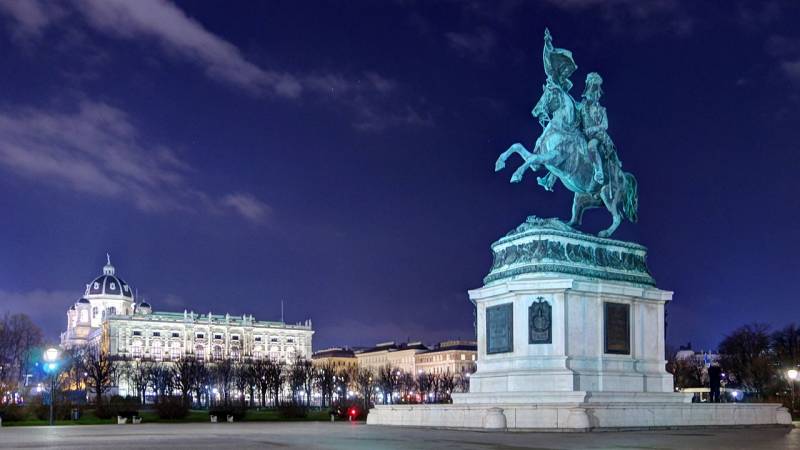
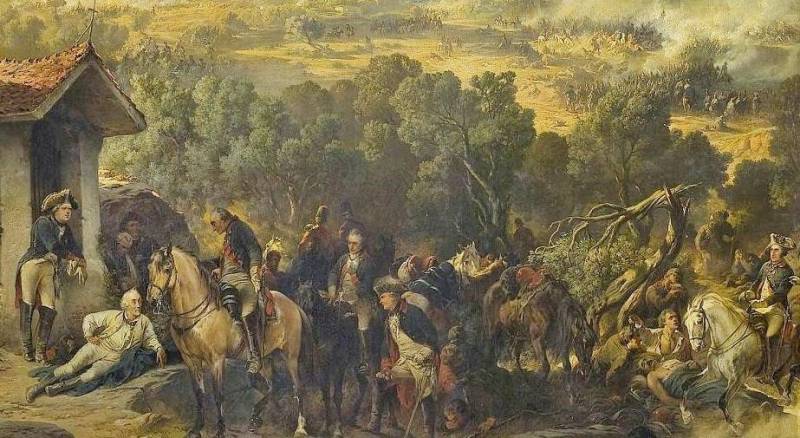
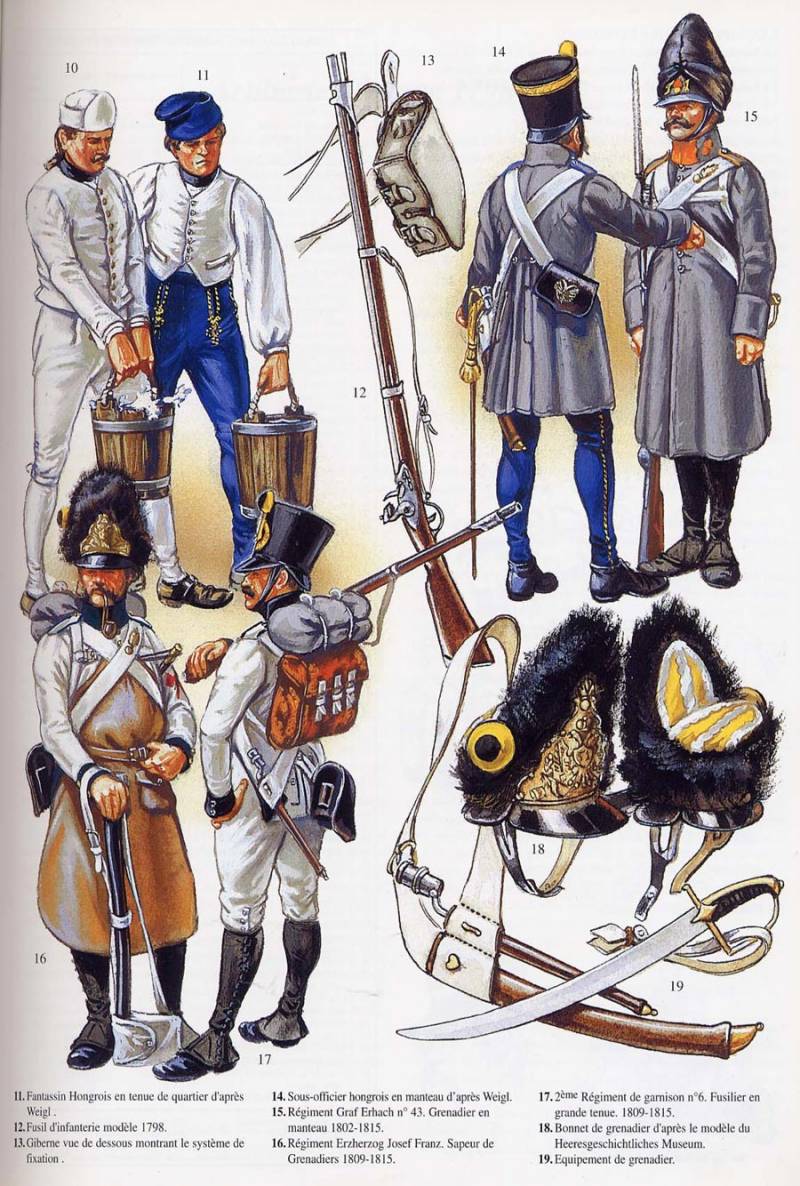
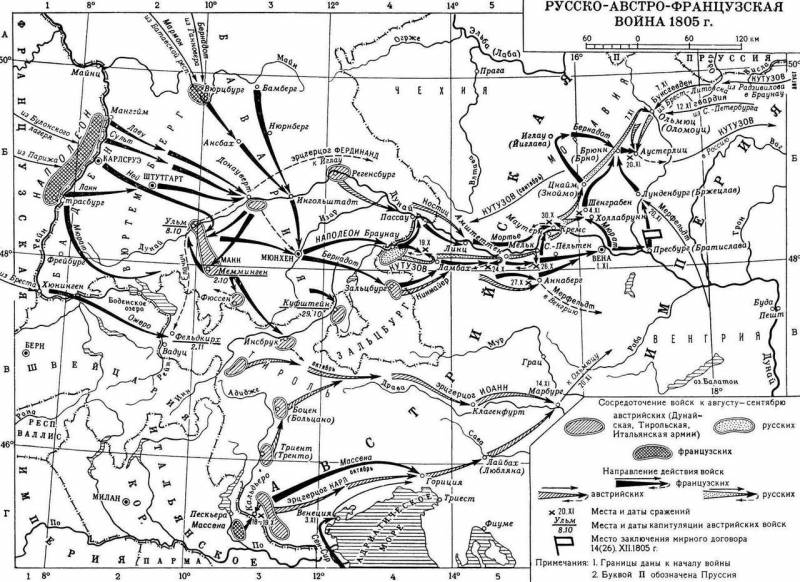
Information